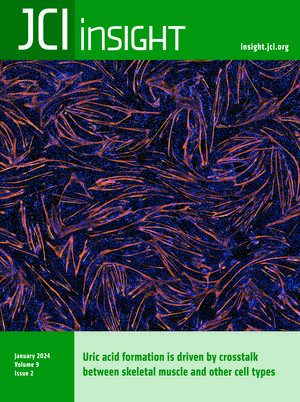Targeted long-read sequencing enriches disease-relevant genomic regions of interest to provide complete Mendelian disease diagnostics.
IF 6.3
1区 医学
Q1 MEDICINE, RESEARCH & EXPERIMENTAL
引用次数: 0
Abstract
Despite advances in sequencing technologies, a molecular diagnosis remains elusive in many Mendelian disease patients. Current short-read clinical sequencing approaches cannot provide chromosomal phase information or epigenetic information without further sample processing, which is not routinely done and can result in an incomplete molecular diagnosis in patients. The ability to provide phased genetic and epigenetic information from a single sequencing run would improve the diagnostic rate of Mendelian conditions. Here we describe Targeted Long-read Sequencing of Mendelian Disease genes (TaLon-SeqMD) using a real-time adaptive sequencing approach. Optimization of bioinformatic targeting enabled selective enrichment of multiple disease-causing regions of the human genome. Haplotype-resolved variant calling and simultaneous resolution of epigenetic base modification could be achieved in a single sequencing run. The TaLon-SeqMD approach was validated in a cohort of 18 subjects with previous genetic testing targeting 373 inherited retinal disease (IRD) genes, yielding the complete molecular diagnosis in each case. This approach was then applied in two IRD cases with inconclusive testing, which uncovered non-coding and structural variants that were difficult to characterize by standard short-read sequencing. Overall, these results demonstrate TaLon-SeqMD as an approach to provide rapid phased-variant calling to provide the molecular basis of Mendelian diseases.靶向长线程测序能富集与疾病相关的基因组感兴趣区,提供完整的孟德尔疾病诊断。
尽管测序技术不断进步,但许多孟德尔病患者仍无法获得分子诊断。目前的短读临床测序方法在没有进一步样本处理的情况下无法提供染色体相位信息或表观遗传信息,而这并非常规做法,可能导致患者的分子诊断不完整。如果能通过一次测序提供分阶段的遗传和表观遗传信息,就能提高孟德尔疾病的诊断率。在此,我们介绍了使用实时自适应测序方法对孟德尔疾病基因进行靶向长读测序(TaLon-SeqMD)的情况。生物信息学靶向的优化实现了对人类基因组中多个致病区域的选择性富集。在一次测序过程中就能实现单体型解析的变异调用和表观遗传碱基修饰的同步解析。TaLon-SeqMD方法在18名先前针对373个遗传性视网膜疾病(IRD)基因进行过基因检测的受试者队列中进行了验证,在每个案例中都得出了完整的分子诊断结果。该方法还应用于两个检测结果不确定的 IRD 病例,发现了标准短线程测序难以定性的非编码和结构变异。总之,这些结果证明 TaLon-SeqMD 是一种提供快速分阶段变异调用的方法,可为孟德尔疾病提供分子基础。
本文章由计算机程序翻译,如有差异,请以英文原文为准。
求助全文
约1分钟内获得全文
求助全文
来源期刊

JCI insight
Medicine-General Medicine
CiteScore
13.70
自引率
1.20%
发文量
543
审稿时长
6 weeks
期刊介绍:
JCI Insight is a Gold Open Access journal with a 2022 Impact Factor of 8.0. It publishes high-quality studies in various biomedical specialties, such as autoimmunity, gastroenterology, immunology, metabolism, nephrology, neuroscience, oncology, pulmonology, and vascular biology. The journal focuses on clinically relevant basic and translational research that contributes to the understanding of disease biology and treatment. JCI Insight is self-published by the American Society for Clinical Investigation (ASCI), a nonprofit honor organization of physician-scientists founded in 1908, and it helps fulfill the ASCI's mission to advance medical science through the publication of clinically relevant research reports.
 求助内容:
求助内容: 应助结果提醒方式:
应助结果提醒方式:


